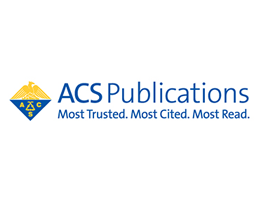FOR IMMEDIATE RELEASE
ACS News Service Weekly PressPac: July 28, 2021
Recent advances in COVID testing
Since the early days of the COVID-19 pandemic, reverse transcriptase-polymerase chain reaction (RT-PCR) has been the most widely used diagnostic test for the sensitive detection of SARS-CoV-2. However, researchers have made great progress in developing faster, cheaper, simpler and more accurate methods, including ones that can be deployed in resource-limited settings. Below are some recent papers published in ACS journals that report on advances in COVID testing.
“Hyperspectral Mapping for the Detection of SARS-CoV-2 Using Nanomolecular Probes with Yoctomole Sensitivity”
ACS Nano
July 19, 2021
In this paper, researchers report development of an ultrasensitive hyperspectral sensor based on hafnium nanoparticles for the detection of SARS-CoV-2. The assay, which can be completed in a few seconds, can detect the virus at a concentration 1 million times lower than currently available tests, with 100% specificity. The outstanding sensitivity suggests that the biosensor could be useful in diagnosing pre-symptomatic and asymptomatic COVID-19 cases, the researchers say.
“Dye-Loaded Polymersome-Based Lateral Flow Assay: Rational Design of a COVID-19 Testing Platform by Repurposing SARS-CoV-2 Antibody Cocktail and Antigens Obtained from Positive Human Samples”
ACS Sensors
July 16, 2021
Researchers repurposed SARS-CoV-2-specific antigens and antibodies from patient samples to develop a lateral flow assay for the naked-eye detection of the virus. The test is economical and suitable for use in resource-limited settings, the scientists say.
“Multichannel Immunosensor Platform for the Rapid Detection of SARS-CoV-2 and Influenza A(H1N1) Virus”
ACS Applied Materials & Interfaces
May 9, 2021
COVID-19 and influenza A can have similar symptoms, so researchers developed a point-of-care test that could quickly and simultaneously test for both viruses. The multichannel electrochemical immunoassay showed a broader linear range, comparable sensitivity and much higher specificity than the commonly used enzyme-linked immunosorbent assay (ELISA).
“Rapid Detection of COVID-19 Using MALDI-TOF-Based Serum Peptidome Profiling”
Analytical Chemistry
March 3, 2021
Mass spectrometry combined with machine learning quickly detected SARS-CoV-2 from peptides in patients’ serum, with 98% sensitivity and 100% specificity. The high-throughput method has great potential for screening, routine surveillance and diagnosis of COVID-19 in large populations, the researchers say.
###
The American Chemical Society (ACS) is a nonprofit organization chartered by the U.S. Congress. ACS’ mission is to advance the broader chemistry enterprise and its practitioners for the benefit of Earth and all its people. The Society is a global leader in promoting excellence in science education and providing access to chemistry-related information and research through its multiple research solutions, peer-reviewed journals, scientific conferences, eBooks and weekly news periodical Chemical & Engineering News. ACS journals are among the most cited, most trusted and most read within the scientific literature; however, ACS itself does not conduct chemical research. As a leader in scientific information solutions, its CAS division partners with global innovators to accelerate breakthroughs by curating, connecting and analyzing the world’s scientific knowledge. ACS’ main offices are in Washington, D.C., and Columbus, Ohio.
To automatically receive press releases from the American Chemical Society, contact newsroom@acs.org.
Note: ACS does not conduct research, but publishes and publicizes peer-reviewed scientific studies.
Media Contact
ACS Newsroom
newsroom@acs.org


